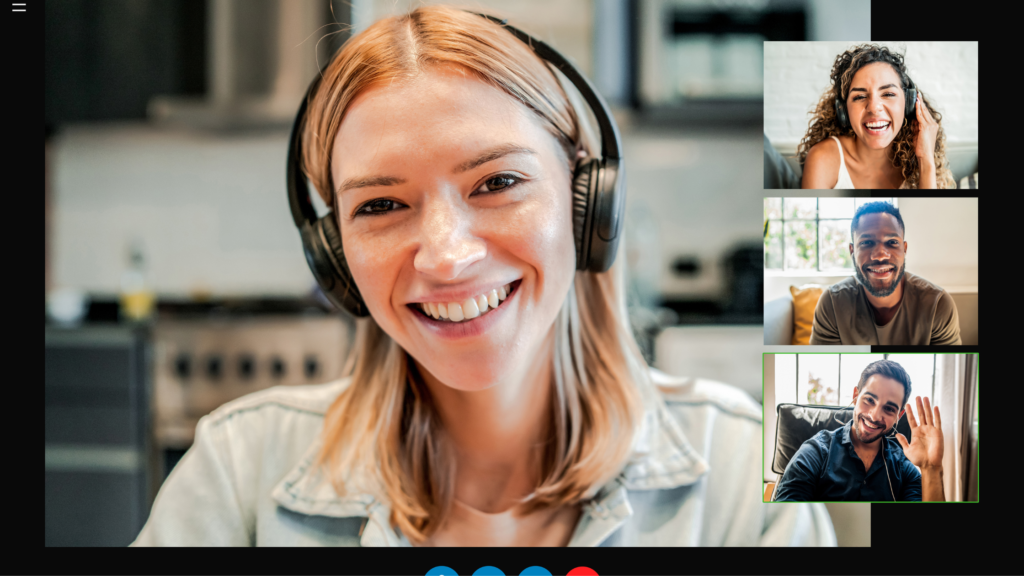Job interviews come in various forms and styles, each designed to assess different aspects of a candidate’s suitability for a role. Let’s delve into 20 different types of job interviews, ranging from the traditional face-to-face interview to the increasingly popular video and competency-based interviews. Understanding the nuances of each interview type is crucial for job seekers to navigate the hiring process successfully.
Behavioural Interview:
Behavioural interviews focus on understanding how candidates have handled specific situations in the past. Interviewers want to learn about your actions, behaviours, and decision-making processes in various work-related scenarios. Prepare by identifying key experiences that showcase your skills and competencies.
Structured Interview:
Structured interviews follow a predetermined set of questions for all candidates. These questions are often linked to the job requirements and are designed to assess specific skills and qualities. Job seekers should respond directly to the question asked, providing examples that align with the job’s expectations.
Panel Interview:
In panel interviews, multiple interviewers assess a candidate simultaneously. Each panel member may represent different perspectives or departments within the organization. Maintain eye contact with each panelist, and be attentive to everyone’s questions to ensure comprehensive engagement.
Unstructured Interview:
Unstructured interviews are more conversational and flexible. Interviewers may explore a variety of topics, allowing for a more relaxed exchange. Job seekers should be prepared to discuss their experiences, skills, and career aspirations in a less formal setting.
Group Interview:
Group interviews involve multiple candidates participating in the same interview session. Employers observe how candidates interact, communicate, and collaborate, and stand out by assertiveness with cooperation, actively listening to others, and contributing thoughtfully.

Video Interview:
Video interviews, held on platforms like Zoom or Skype, require additional consideration. Ensure a professional background, good lighting, and minimal distractions. Dress as you would for an in-person interview, maintaining eye contact with the camera.
Informational Interview:
Informational interviews are more exploratory, initiated by job seekers to gather insights about an industry or role. Prepare questions that demonstrate your genuine interest in the professional’s experiences and industry knowledge.
Semi-Structured Interview:
Semi-structured interviews blend a set of predetermined questions with the flexibility to delve deeper into certain topics. Candidates should be ready for both specific and open-ended questions, allowing them to showcase their skills and experiences in a variety of contexts.
Case Interview:
Common in consulting and analytical roles, case interviews assess a candidate’s problem-solving abilities. Practice solving business problems within a time limit, focusing on clear communication and a structured approach to analysing and presenting solutions.
Mock Interview:
Mock interviews simulate real interview scenarios to help candidates practice and receive feedback. Seek constructive criticism and use the opportunity to refine your responses, improve communication skills, and build confidence.
Informational Interview:
Informational interviews are more exploratory and are often conducted by job seekers to gather insights about a particular industry or role. Develop a list of thoughtful questions to learn about the professional’s career path, industry trends, and advice.
Exit Interview:
Exit interviews occur when an employee is leaving a company. Be honest and constructive in your feedback, focusing on your experiences and suggestions for improvement. This process can contribute to organizational growth and employee satisfaction.
One-on-One Interview:
One-on-one interviews provide a focused interaction between the candidate and the interviewer. Candidates should be prepared to discuss their qualifications, experiences, and how they align with the specific requirements of the role.
Telephone Interview:
Telephone interviews are often used for initial screenings. Practice clear communication, avoid distractions, and have a copy of your resume and notes on hand. Ensure a quiet environment to articulate your responses effectively.
Final Interview:
The final interview is a crucial stage before a job offer. Be prepared to discuss your long-term goals, how you align with the company’s vision, and any additional details that may contribute to the decision-making process.
Competency-Based Interview:
Competency-based interviews focus on specific skills and qualities required for the job. Use the STAR method (Situation, Task, Action, Result) to structure your responses, providing concrete examples that demonstrate your competencies.
Working Interview:
In a working interview, candidates perform tasks or demonstrate their skills related to the job. Showcase your practical abilities and problem-solving skills, emphasising how you apply your knowledge in a work setting.
Traditional Interview:
Traditional interviews involve face-to-face conversations covering a range of topics, from qualifications to situational scenarios. Prepare for a diverse set of questions and focus on clear and concise responses.
Job Fair Interview:
Job fair interviews are often brief interactions at career fairs or recruitment events. Stand out by preparing an elevator pitch, demonstrating your enthusiasm for the company, and expressing your interest in potential opportunities.
Group Interviews:
Group interviews involve multiple candidates being assessed simultaneously. Exhibit strong communication and collaboration skills, showcasing your ability to contribute positively to group dynamics and discussions.
Individual Interview:
The individual interview, synonymous with the one-on-one format, provides a personalized interaction between the candidate and the interviewer. Focus on creating a connection, articulating your experiences, and demonstrating your enthusiasm for the role.
Face-to-Face Interview:
Face-to-face interviews encompass any interview conducted in person. It provides a direct and personal connection, allowing candidates to establish rapport with interviewers and demonstrate their interpersonal skills.
Focus Group Interviews:
Focus group interviews involve a small group of candidates discussing specific topics or scenarios. Showcase your communication and teamwork skills by actively participating, listening, and contributing constructively to the group discussion.

How to prepare for a face-to-face, virtual and telephone interview.
Preparing for interviews is crucial, and tailoring your approach based on the format—whether it’s face-to-face, virtual, or telephone—is essential. Here’s a comprehensive guide on how to prepare for each type of interview as a young adult:
Face-to-Face Interview:
Research the Company:
Familiarize yourself with the company’s history, values, and recent achievements.
Understand the industry and the organisation’s position within it.
Dress Professionally:
Choose attire that aligns with the company culture and is slightly more formal than the everyday dress code.
Practice Common Questions:
Anticipate questions about your background, skills, and experiences.
Use the STAR method (Situation, Task, Action, Result) to structure your responses.
Bring Copies of Your Resume:
Have multiple copies of your resume on hand.
Use them as a reference during the interview.
Prepare Questions:
Develop thoughtful questions about the company, team dynamics, and the role.
This demonstrates your interest in the position and the organisation.
Body Language:
Maintain good posture and eye contact.
Offer a firm handshake and be mindful of your facial expressions.
Follow-Up:
Send a thank-you email expressing your appreciation for the opportunity.
Reiterate your interest and briefly mention a key point from the interview.

Virtual Interview:
Test Technology in Advance:
Familiarise yourself with the video conferencing platform.
Check your camera, microphone, and internet connection.
Set Up a Professional Background:
Choose a clean and neutral background.
Ensure good lighting to make your face visible.
Dress Professionally:
Dress as you would for an in-person interview.
Avoid distracting patterns or colours.
Eliminate Distractions:
Choose a quiet location for the interview.
Turn off notifications on your computer or phone.
Practice Video Etiquette:
Look into the camera, not at the screen.
Avoid excessive movements or fidgeting.
Prepare for Technical Glitches:
Have a backup plan in case of technical issues.
Share your contact information with the interviewer.
Practice Responses Aloud:
Practice answering questions aloud to refine your verbal communication.
Test your microphone and sound quality.
Follow-Up:
Send a thank-you email within 24 hours.
Mention your appreciation for the virtual opportunity.

Telephone Interview:
Choose a Quiet Location:
Select a quiet and comfortable space for the interview.
Minimise background noise to ensure clear communication.
Have a Physical Copy of Your Resume:
Keep a hard copy of your resume in front of you.
Use it as a reference during the conversation.
Prepare for Common Questions:
Anticipate questions and practice concise responses.
Focus on clarity and avoid speaking too quickly.
Stand Up While Talking:
Standing can project confidence and energy in your voice.
Ensure you’re in a quiet space if standing.
Smile While Speaking:
Even though it’s a phone interview, smiling can positively influence your tone.
Convey enthusiasm through your voice.
Avoid Interruptions:
Turn off call waiting and other notifications.
Inform those around you about the interview to minimise interruptions.
Practice a Professional Greeting:
Answer the phone with a professional greeting.
Confirm the interviewer’s name and use it during the conversation.
Follow-Up:
Send a thank-you email promptly.
Express gratitude for the interview and restate your interest in the position.
General Tips- How to Succeed in Interviews:
Research the Company:
Regardless of the format, thoroughly research the company and its culture.
Know Your Resume:
Be ready to discuss your experiences, skills, and achievements mentioned on your resume.
Understand the Job Description:
Analyze the job requirements and align your experiences with the role.
Practice, Practice, Practice:
Rehearse common questions and answers.
Record yourself to assess your tone, clarity, and body language.
Prepare Questions:
Have thoughtful questions for the interviewer.
This shows your interest and engagement in the process.
Stay Positive and Enthusiastic:
Maintain a positive attitude throughout the interview.
Convey enthusiasm for the position and the company.
Follow-Up:
Send a personalised thank-you email after each interview.
Reiterate your interest and express gratitude for the opportunity.
Remember, confidence comes with preparation. Tailoring your approach to each interview format demonstrates adaptability and professionalism, key qualities employers seek in candidates.
In Conclusion:
Navigating the diverse landscape of job interviews requires adaptability, preparation, and a keen understanding of the specific nuances associated with each format.
Job seekers who approach interviews with a strategic mindset, tailor their responses to the unique characteristics of each interview type and effectively showcase their skills and personality will enhance their chances of success in today’s competitive job market. Good luck!

